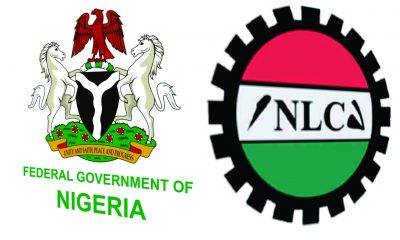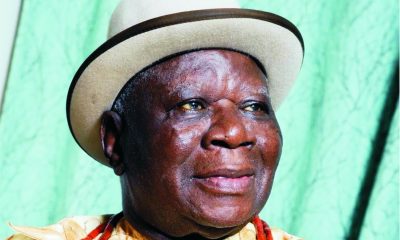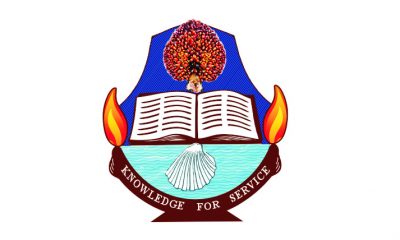Politics
2011: Prospects, Anxieties And Fears
Political analysts and scientists often liken democratic practice to an evolutionary process, which is usually slow, steady but assured.
The practice, they say, is however, laden with self-cleansing and regulatory mechanisms.
In the lead-up to the 2011 general elections that will involve 59 political parties; observers note that there is widespread anxiety among the citizenry about the polls because of recent developments such as assassinations and other politically motivated violence.
Many Nigerians will not forget in a hurry, the turbulence that has characterised the nation’s political terrain since independence, although they admit that a relative stability now prevails.
Observers, nonetheless, insist that the relative stability invariably imposes a challenge on the citizenry, particularly the politicians, to strive to sustain the durability of the fledging Republic.
“No doubt, the nation has risen from many of its endemic challenges that stalled our democratic growth since independence,” notes Dr Bola Ogunleye, a political scientist based in Abuja.
Right from the Fourth Republic, since 1991, some critical national issues have manifested, adding that many of the problems required commitment, patriotism and statesmanship to surmount.
“One good thing is that we have had two civilian administrations that succeeded themselves, though with some measure of turbulence, which is not alien to democratic practices,” Ahmed Shehu, a civil servant, says.
However, Mr Josiah Uwazuruonye, INEC’s Resident Electoral Commissioner (REC) for Anambra, advises Nigerians to strive to abide by the provisions of the 1999 Constitution and the Electoral Act, to achieve the dream of having credible elections in 2011.
In the same vein, former Governor Bola Tinubu Lagos State warns that only free, fair and transparent elections can lead Nigeria to the path of redemption.
Says Tinubu: “A credible election is the only guarantee for the country’s unity, stability and prosperity.’’
Apart from the views of concerned citizens over the forthcoming polls, many countries of the world, including the U.S. and Britain, have been calling for the conduct of flawless elections in Nigeria in 2011.
The U.S. Ambassador to Nigeria, Ms Robin Sanders, says that “a clean, unrigged and transparent election” in Nigeria is imperative, in line with contemporary expectations the world over.
She says that through the U.S.-Nigeria Bi-National Commission (BNC), her country hopes to offer technical assistance to Nigeria to achieve the lofty goal of organising a credible election.
The fears and viewpoints, notwithstanding, President Goodluck Jonathan has repeatedly assured Nigerians that he will ensure “electoral integrity” during the forthcoming elections.
While some observers say that electoral integrity does not exist in a vacuum, they, however, point to certain imperatives that would give it a realistic meaning.
“All stakeholders — INEC, politicians, political parties and even the electorate — must get their acts together and rightly too,” Ogunleye says, arguring that nation’s electoral process has always been a sore point in its march towards attaining a lasting democratic culture.
Ogunleye insists that the success of the Nigerian democracy hinges on three factors including the transparency of INEC, the conduct of politicians and political parties, as well as the functionality of the extant electoral laws.
Observers point out that the ‘one-man-one-vote’ campaign, initiated recently in Edo State by Governor Adams Oshiomhole, is instructive, as most citizens still feel that their votes never count in the election of their representatives due to their past experience.
“It is an essential fulcrum with which to move the wheels of democracy, says Joseph Idemudia, a political science student at the University of Abuja.
Apparently reinforcing such claims, Jonathan says: “We must develop a democratic culture in which the will of the people will be treated as sacred and immune to subversion by anti-democratic elements.”
In recent times, many Nigerian voters have developed apathy toward elections because of past frustrations, which include defective voter registers; trauma experienced on election days due to political violence as well as brazen rigging of elections.
“Either by omission or commission, INEC and the SIECs have been culpable in the subversion of the electoral process in the country, as they tolerated some unscrupulous officials in their employment,” says a rights activist, Ms Titi Adekunle.
ANPP’s National Director of Publicity, Mr Sabo Muhammed, wants Prof. Attahiru Jega, the new INEC Chairman, to “re-brand INEC by flushing out all bad eggs” in the commission as soon as possible.
However, INEC officials have defended their agency, insisting that some unscrupulous politicians and nonchalant voters are to blame for past electoral flaws.
Mr Emmanuel Umenger, INEC’s Director of Public Affairs, insists that “until the politicians do away with the do-or-die attitude over elections, the quest for a free and fair election would always be defeated.
“It is mandatory for other stakeholders to comply with the guidelines of electoral process and eschew violence for a successful election in 2011,” Umenger said.
Besides, Mr Aniedi Ikoiwak, a Resident Electoral Commissioner (REC) of INEC, says that efforts toward a credible 2011 elections require a purposeful collaboration between INEC and the citizens.
Ikoiwak concedes that the conduct of previous elections by INEC had been somewhat defective but stresses that the mistakes were never deliberate.
Some political parties and associations have made some proposals on how to ensure hitch-free elections in 2011. The Bauchi State chapter of the Conference of Nigerian Political Parties (CNPP) urges the Federal Government to bar all government officials from monitoring or supervising the 2011 elections.
“The ban should also cover the President, governors as well as national and state assembly members because the monitoring of elections by government officials in the past created a lot of suspicion and undue influence on the electorate.
Political analysts underscore the need to have a credible voter register for 2011 polls, arguing that a flawless register of voters is a requirement for credible elections.
Says Abdullahi: “The new INEC boss must take immediate steps to flag off the commencement of the update of the voter register because no credible election can be achieved without a credible and flawless voter register.” According to analysts, the conduct of politicians and political parties has been a source of concern in the quest for credible elections in Nigeria.
The REC in Anambra, Mr Josiah Uwazuruonye, says that the amendment of the Constitution and the Electoral Act will not necessarily solve the nation’s electoral problems if the human element in the electoral process is ignored. But another problem militating against Nigerian democracy, is the unwillingness of some politicians to readily concede defeats after contesting elections.
“It’s a culture that politicians must cultivate; whenever your opponent wins, you should be magnanimous enough to concede defeat,” says Miss Joyce Nwoye, a youth corps member.
Apart from the attitudinal factor, observers insist that the conduct of political parties has not been helpful, as most of the parties lack internal democracy in their affairs, particularly in the conduct of primaries.
According to Uwazuruonye, “once there is no internal democracy in the nomination and selection of candidates by political parties, there is no way the main election between the various political parties will be fair”.
Aside from these factors, the disposition of the voter is equally important and political analysts say that “the responsibility for a credible election is in the hands of every Nigerian. We should sensitise our people in schools, homes and offices to their civic responsibilities so as to achieve a credible election in 2011”.
However, many Nigerians and political parties have expressed optimism about a positive change in the country’s electoral process with the appointment of Jega as INEC’s Chairman.
The Social Democratic Mega Party (SDMP), describes Jega as a man with “a commitment to always do what is right”.
Prof. Pat Utomi is, however, quick to point out that problems confronting INEC are quite bigger than the person heading it, stressing that “INEC alone cannot deal with the systemic challenges facing the entire system.”
“The system is full of corruption and the ultimate solution still remains with the people becoming aware and determined to hold the system accountable,” he says.
Mr Yinka Odumakin, the spokesman for the “Save Nigeria Group’’ (SNG), and Chief Maxi Okwu, the National Chairman of the Citizens Popular Party (CPP), vouch for competence of the INEC Chairman in charting a purposeful roadmap for the success of the 2011 general elections.
But the Action Congress (AC) is cautious to comment on Jega’s appointment, as its National Publicity Secretary, Alhaji Lai Mohammed, says that the party is still studying the person of the new INEC Chairman.
In spite of the widespread anxiety in the country on the 2011 general elections, there is a cautious optimism that all will be well.
The citizens’ optimism is, however, hinged on the adoption of electoral reform strategies and other relevant mechanisms, as well as the avowed commitment of President Jonathan to holding credible polls.
The people express the hope that by 2011, Nigeria will be able to lift itself out of the electoral doldrums that have been the bane of the Nigerian democracy.
Ohain is of News Agency of Nigeria (NAN)
Celsus Ohain
Politics
Lagos Assembly Commotion: Lawmakers Reject Obasa’s Return, Pass Confidence Vote On Meranda
Members of the Lagos State House of Assembly, on Monday, passed a vote of confidence in Mojisola Meranda as the Speaker of the Assembly.
The lawmakers expressed their confidence in her leadership at the plenary, which Rt Hon. Meranda presided over amidst tight security.
The Tide’s source reports that there was a growing tension at the assembly as legislative workers protested against the alleged plans to remove Rt Hon. Meranda as the Speaker of the Assembly.
The legislative workers also clashed with the operatives of the Department of State Security (DSS) who, in the early hours of Monday, stormed the assembly and sealed Rt Hon. Meranda’s office alongside that of her Deputy and the Clerk.
Our source had reported how armed security personnel took over the complex at Alausa, Ikeja, leading to palpable tension among the lawmakers and workers of the assembly.
There are indications that the ongoing imbroglio at the assembly following the removal of Mudashiru Obasa as Speaker on January 13 has not abated.
The Monday’s drama came a few days after Mr Obasa, who was removed for alleged abuse of office and corruption, dragged the state lawmakers to court, challenging his removal as the Speaker of the Assembly.
There are alleged plans to return Mr Obasa as the Speaker, a development which has further heightened tension at the assembly.
The Tide’s source reports that when Meranda arrived the assembly complex amidst tight security around 11:15 am on Monday, many legislative workers showed solidarity with the first female Speaker over alleged plans to remove her.
“Meranda we want”, “Meranda We want”, the workers were chanting in a short video clip.
Rt Hon. Meranda visibly overwhelmed by emotion was surrounded by her security details amid the chaotic atmosphere.
Inside the chamber, officials of the DSS clashed with the legislative workers, leading to commotion.
The DSS officials, dressed in black jackets and helmets and armed with weapons, struggled with the workers at the door.
The Tide’s source gathered that, with support from the legislative workers, lawmakers had earlier forced their way into the chamber around 12:30 pm.
It was further gathered that Rt Hon Meranda and about 32 members were present at the plenary.
A short video clip of the plenary showed that all the lawmakers in attendance had passed a vote of confidence on Rt Hon Meranda.
“Madam Speaker, all members standing before you, I move a motion to say that we do pass the vote of confidence on Rt Hon Mojisola Lasbat Meranda”, a lawmaker said.
The motion was supported by all members in attendance.
Politics
PDP, APC Trade Blame Over Killings In Osun Local Councils’ Crisis
The Peoples Democratic Party (PDP) and the All Progressives Congress (APC) in Osun State, on Monday, traded words over the alleged killing of three persons.
Members of both parties were locked in battle for the control of some local government secretariats. While two persons were killed in Iragbiji in Boripe Local Government Area, another was killed in Irewole Local Government Area.
There had been tension across the state over the Court of Appeal judgment in respect of the sacked APC council chairmen and councillors.
While the PDP claimed that the Feb. 10 judgment of the Court of Appeal, Akure, did not reinstate the sacked APC chairmen and councillors elected in 2022, APC insisted on their return.
Speaking with journalists in Iragbiji, Korede Ajeigbe, the commissioner for government affairs and protocol, claimed that two PDP members were killed while trying to prevent APC members from taking over a secretariat.
Mr Ajeigbe also said that six PDP members were seriously injured and were currently receiving treatment in the hospital.
APC, however, alleged that PDP members attacked its members while trying to enforce the Court of Appeal judgment.
Addressing a news conference in Osogbo, Bayo Adeleke, a chieftain of the APC, claimed that one of the party’s prominent members was killed during the crisis.
He also alleged that another member of the party, Remi Omowaye, escaped an assassination attempt in Ilesa.
Mr Adeleke, a former commissioner for local government and chieftaincy affairs, urged the state government to allow peace to reign by allowing the APC chairmen and councillors to return to office.
Another chieftain of the party, Jamiu Olawumi, claimed that APC chairmen had resumed in 15 local governments of the state.
This claim, however, could not be immediately verified.
When contacted, the police spokesperson in the state, CSP Yemisi Opalola, said she was yet to be briefed on the alleged killings.
Ms Opalola, however, said police officers had been deployed to all the local government secretariats in the state to prevent breakdown of law and order.
Meanwhile, Gov. Ademola Adeleke has directed workers as well as politicians to stay away from local government secretariats to avoid further bloodshed.
Mr Adeleke, in a statement by his spokesperson, Olawale Rasheed, said only security agents would be allowed to keep watch at the secretariats.
He condoled with families of victims of the crisis.
Politics
100 Days In Office: Lawmaker Passes Confidence Vote On Council Boss
Leader of the 8th Opobo/Nkoro Legislative Assembly, Barrister Samuel Nengia, has passed a vote of confidence on the Chairman of the LGA, Dr. Enyiada Cookey-Gam, as he marked his first one hundred days in his second term in office.
Speaking with newsmen recently in Port-Harcourt on Dr Cookey-Gam and the celebration of his first one hundred days in office, among other people-oriented development projects and programmes, Nengia argued that the Chairman and his team have recorded unprecedented developmental strides, which includes infrastructure transformation, empowerment, security, human capital development, payment of the approved N85,000. 00 minimum wage to Opobo/Nkoro workers’, among others.
He pointed out that his commendation was apt as the activities of the Chairman had been monitored and discovered to reflect the expectations and yearnings of the people, especially, the promotion of council staff, the refurbishment of the Assembly Complex to standard, the construction of Corpers’ Lodge, the provision of effective transportation system for the well-being of the people in the area.
Hon. Nengia, representing Opobo/Nkoro Ward 6, averred that the people of the LGA could now sleep with their eyes closed owing to Dr Cookey-Gam’s achievements in in the security sector.
He added that the vote of confidence the Council’s number one citizen would strengthen him to deliver more democratic dividends to Opobo/Nkoro people.
He admonished Opobo/Nkoro people to rally support for the Chairman to perform creditably well for the well-being of the electorate in the area.
Meanwhile, Barr. Samuel Nengia, has thanked Governor Siminalayi Fubara for appointing three illustrious sons of Opobo/Nkoro Local Government Area into positions of trust vis former Commissioner for Education, Dr. Tamunosisi Gogo Jaja, as Chairman, Rivers State House of Assembly Service Commission; former Secretary of Opobo/Nkoro Local Government Area, Engr. Edward Namiesimagha, as Chairman, Rivers State Waste Management Agency (RIWAMA) and Surveyor Peter Ogolo, as Surveyor-, General of the state.
Hon. Nengia, who described the appointments as well deserved, however, enjoined the appointees to bring their leadership wealth of experience to bear in the herculean tasks of reviving their various areas of jurisdiction.
Bethel Toby
-
Niger Delta5 days ago
Delta Approves N275bn For 76 Projects Execution
-

 Editorial5 days ago
Editorial5 days agoSolid Minerals, Cesspit Of Corruption
-

 Business5 days ago
Business5 days agoNigeria’s Non-Oil Exports Growth Rises 20.7% To $5.45bn In 2024
-
Politics5 days ago
Diri Renders Stewardship As Jonathan, Others Grace Anniversary Celebration
-

 News5 days ago
News5 days agoFubara Expresses Grief, Commiserates With Family Over Death Of Pa Edwin Clark
-
Business5 days ago
LCCI Urges FG To Reduce Inflation Through Improved Petrol Export
-

 Niger Delta5 days ago
Niger Delta5 days agoUNICAL VC Institutes Scholarship To Reward Academic Excellence
-
Features5 days ago
A Farewell To Arms In Ogoni

